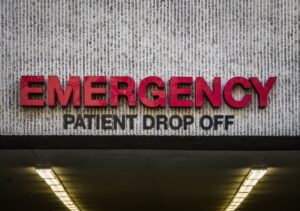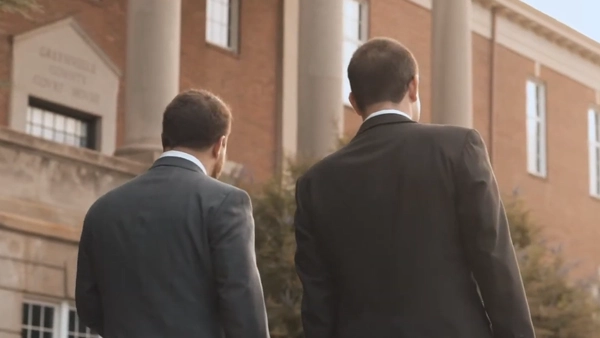If you have been injured in an accident, then you — as the victim — are entitled to seek recovery from the wrongdoer. Under South Carolina law, you are entitled to seek money damages that will make you “whole again.” This included money damages to cover medical bills, property damage, disfigurement and “pain and suffering.”
Many are confused about what “pain and suffering” means. Here is a quick primer.
Greenville SC Personal Injury Lawyers — What is “Pain & Suffering?”

In general, when you bring a lawsuit to recover for injuries related to an accident, the damages sought are divided into two categories: (1) economic and (2) non-economic. The first category is one that covers damages that can be directly measured in lost money such as medical bills and expenses, lost wages, costs of repair, etc. With respect to medical malpractice, South Carolina Code § 15-32-210 provides this definition:
“(3) “Economic damages” means pecuniary damages arising from medical expenses and medical care, rehabilitation services, costs associated with education, custodial care, loss of earnings and earning capacity, loss of income, burial costs, loss of use of property, costs of repair or replacement of property, costs of obtaining substitute domestic services, a claim for loss of spousal services, loss of employment, loss of business or employment opportunities, loss of retirement income, and other monetary losses.”
By contrast, non-economic damages are not subject to any sort of mathematical calculation. Pain and suffering is one example. If you are in an accident — let’s say your van is hit by an oncoming train — you are going to experience pain from minor to medium to severe. If you require surgery or a bone to be set, you will experience pain from the surgery, pain as the doctors reset your bone. If you require physical therapy to rebuild the muscle strength in your leg, you will experience pain as you strive to recover full use. Even though that pain cannot be mathematically calculated as a dollar amount, you are still entitled to compensation for that pain.
Greenville SC Personal Injury Lawyers — What Factors Are Considered?
Because pain and suffering cannot be mathematically calculated, there is no bright-line rule or method of measuring how much a jury might award for pain and suffering. In general, a jury will take the following factors into account:
- Type of injury;
- Severity of injury;
- Length of hospital stay;
- Need for occupational and/or physical therapy and length of same;
- Number of surgical and/or other medical procedures;
- Nature of medical procedures — non-invasive to mildly to extremely invasive;
- Expert testimony from doctors and other with experience with respect to the pain typically suffered for those with the same or similar injuries;
- Level of pain medications prescribed with respect to the injury — customarily prescribed and actually prescribed;
- Testimony from the victim and his/her family;
- Photographic and other direct evidence of the injury;
- Age of the victim;
- Day-to-day impact of the injury on victim’s ability to function — loss of activities; and
- Aggravating factors on the part of the wrongdoer.
Greenville SC Personal Injury Lawyers — Methods Used to Estimate Value of Pain & Suffering
After considering the foregoing factors, lawyers and insurance companies — often the ones paying settlements and jury verdicts — use one of three methods to try and ESTIMATE how much pain and suffering is “worth” as a component of a victim’s damages. The first method — probably the most common — is to use a multiplier of all the economic losses or of the medical bills/costs. Generally, the multiplier is from one to five.
Choosing the multiplier is an art-form — not something that can be defined precisely. Many factors like the ones discussed above impact the choice including the severity of the injury, the victim and aggravating factors like drinking, drug use, lawlessness, carelessness and more on the part of the wrongdoer. Thus, as an example, if the economic losses are $100,000 for a severely injured child but there are no aggravating factors, the lawyers might think the proper multiplier is three. In that case, the lawyers will ask the jury for $300,000 for pain and suffering. If the accident/injury was gruesome — involving a fire, for example — then maybe the multiplier should be five.
Another method is the per diem method. Here a reasonable “per day” value for pain and suffering is presented to the jury. Often, the per diem is based on the person’s daily earnings. The jury is then asked to award pain and suffering based on that per diem times the number of days since the injury — and into the future, if the injury/condition is ongoing. This might be a good method if the medical bills are low because the injuries are “easy” to fix.
A third method attempts to convert pain and suffering into mathematically calculable “jobs” based on the victim’s inability to do certain day-to-day activities. As an example, if the victim was unable to do laundry, then evidence is provided that hiring a housekeeper would cost “x” amount per week. Likewise, if the victim could not drive, evidence is presented with respect to hiring a driver, and more. The jury is then asked to award pain and suffering based on the market value of the services that the victim was unable to perform for himself or herself. Which method is best depends on the facts of your case.
Greenville SC Personal Injury Attorneys: David R. Price, Jr., P.A.
If you have been injured by the wrongful behavior or negligent acts of another, call proven and courtroom-tested Greenville SC personal injury lawyers at David R. Price, Jr., P.A. Our attorneys know how to maximize your recovery and will know the best method of calculating your pain and suffering. Contact our office today via email.








